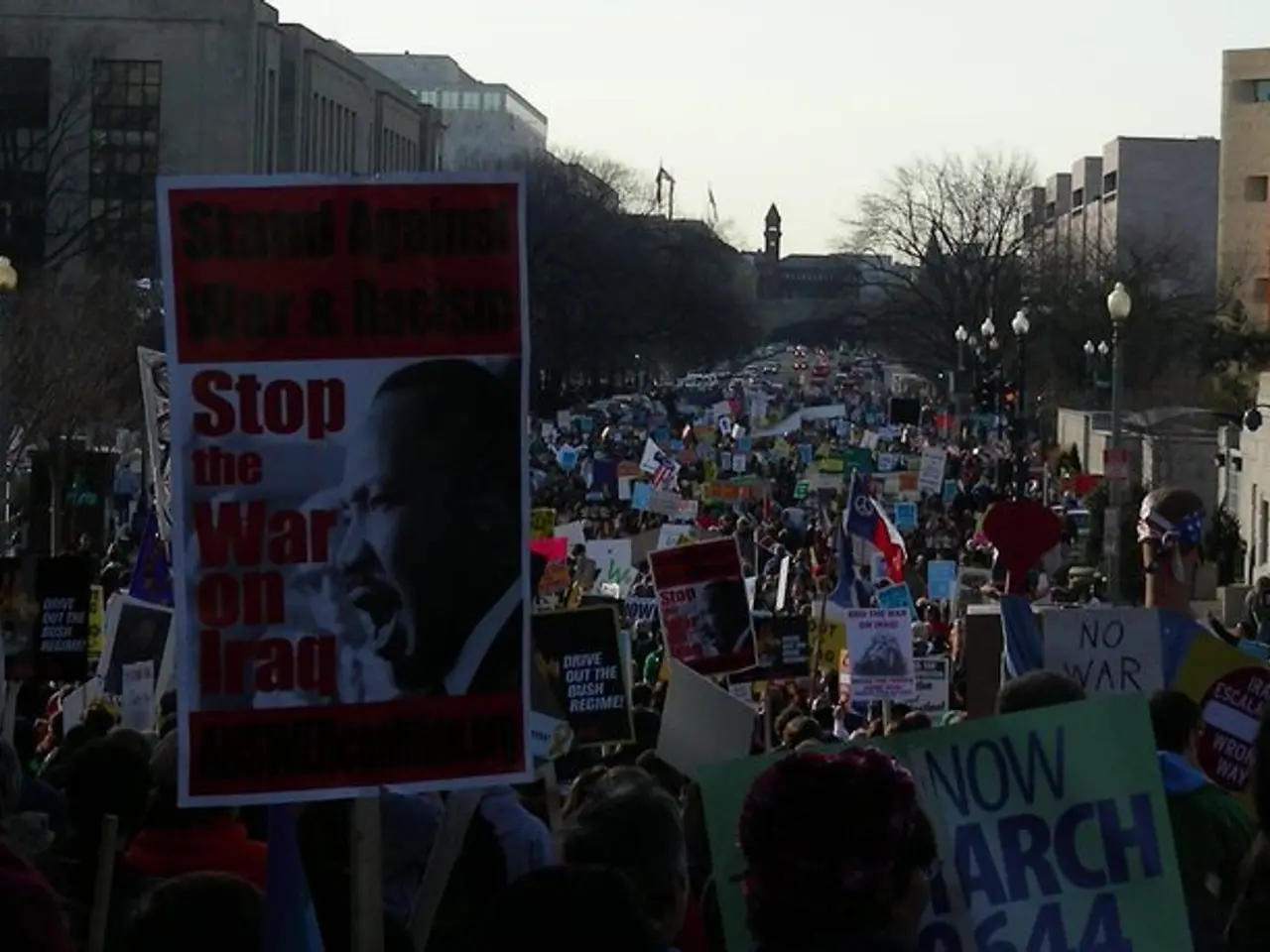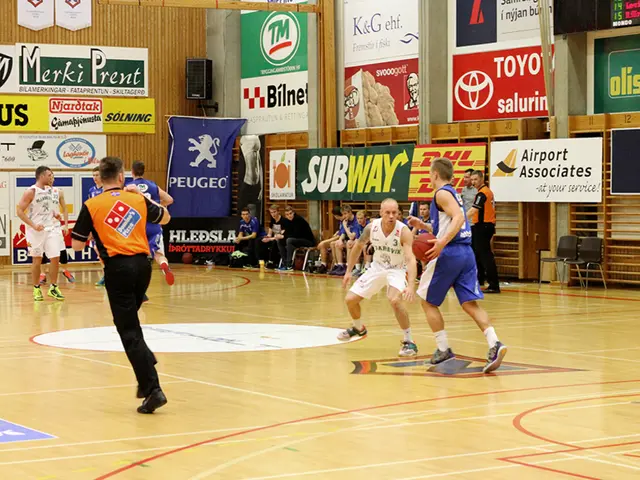A collective gathering, a notable exception
In a heated council meeting held at the Cooperative Comprehensive School (KGS) Forum, AfD councilor Rainer Oberủber refused to sign a pledge for a diverse and tolerant Schneverdingen. His decision sparked outrage and shock among fellow council members, including the mayor Meike Moog-Steffens.
The resolution, initiated by the SPD-Green group and supported by the CDU faction and the SWG FDP group, aimed to promote democracy and human rights. It was the main topic of the meeting, and the newly completed city image film of Schneverdingen was shown, reinforcing the resolution's promotion of the city's diversity and vibrancy.
However, Oberủber's reasoning for his refusal was met with disbelief. He justified his decision with accusations and an inappropriate victim mentality, linking it to the SPD's role in National Socialism. Oberủber also spread the conspiracy theory that protesters against right-wing extremism were being paid for their actions. These comments were compared by Moog-Steffens to the historical persecution of the SPD in 1933.
Dieter Moehrmann, the longtime council chairman and former president of the Lower Saxony state parliament, expressed his outrage at Oberủber's comments. Sebastian Tietzel, a Green councilor, was left speechless in disbelief by Oberủber's remarks. The council members, including the mayor, stood up to declare their support for the democratic principles and human rights enshrined in the Basic Law.
Oberủber denied being present at the event he referenced, citing lack of time. It was later revealed that the event he allegedly denied attending took place in Walsrode, not Schneverdingen. The resolution's focus on right-wing extremists and the mass expulsion of people from the country was the issue that Oberủber could not support.
The meeting in Potsdam, where the mass expulsion of people (remigration) was discussed, has sparked numerous nationwide counter-protests. The resolution in Schneverdingen, however, stands as a testament to the city's commitment to democracy and human rights, and a rejection of any parallels to the darkest times of German history.
In a conciliatory note, the council chair emphasized the importance of staying in dialogue to live well in democracy. The resolution passed, and the council of Schneverdingen reaffirmed its commitment to a diverse, tolerant, and democratic society. Moog-Steffens, in particular, was deeply shocked that facts were being twisted and needed time to collect her thoughts, but remained steadfast in her support for the resolution.







